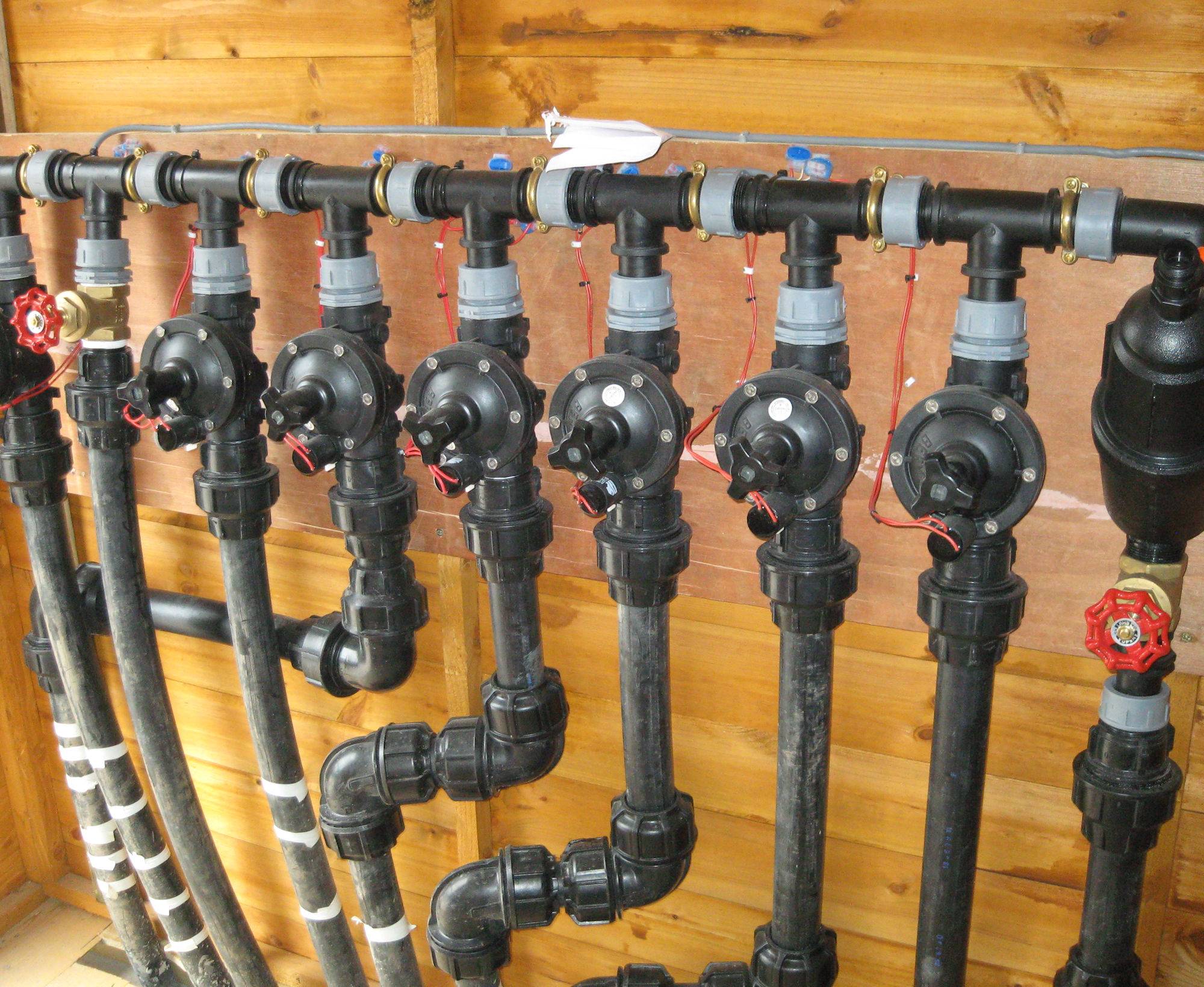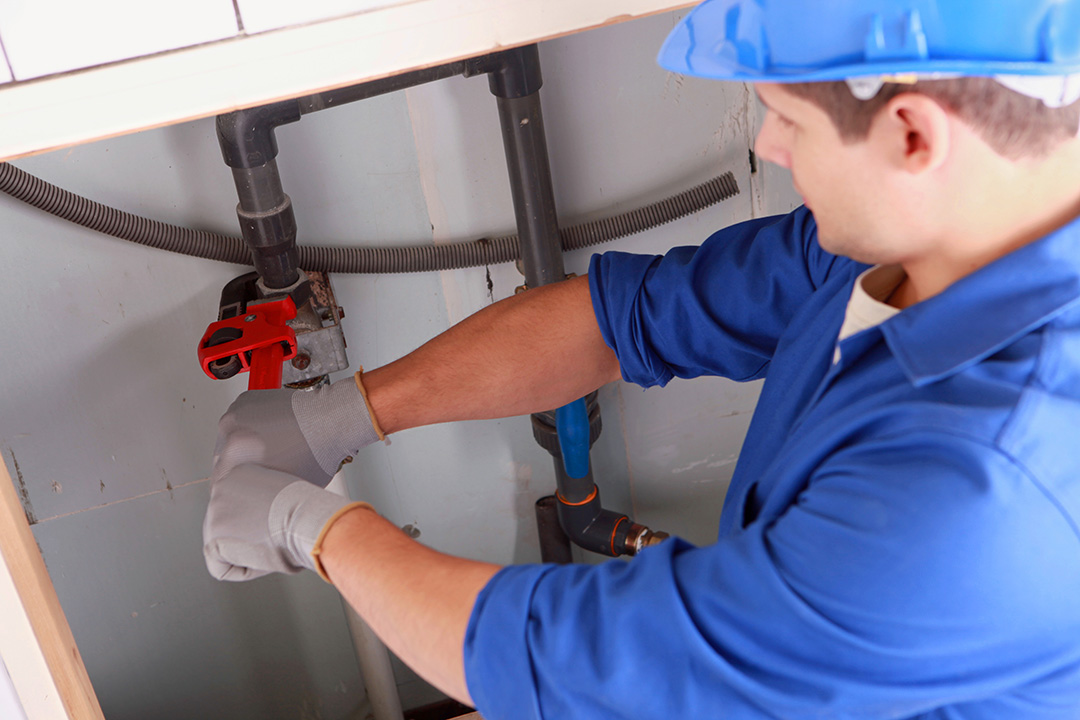Water Hammer Explained: Why it Happens and Ways to Fix It for Good
Water Hammer Explained: Why it Happens and Ways to Fix It for Good
Blog Article
Just how do you feel in regards to What Is Water Hammer & How Do You Stop It??

Introduction
Have you ever before turned off a tap and listened to a loud bang or knocking audio coming from your pipes? That disturbing sound, often referred to as an abrupt thud or clunk, is referred to as water hammer. It's not just an irritating quirk of older homes-- water hammer can take place anywhere, and if left unattended, it can cause more substantial plumbing troubles. In this short article, we'll demystify water hammer, explore its reasons, and go over practical methods to deal with and prevent it. Think about it as your ultimate guide to subjugating those unruly pipelines once and for all.
What is Water Hammer?
Water hammer is a shockwave of pressure that happens within your pipes when water circulation quits or alters instructions suddenly. Envision a group of joggers dashing down a slim hallway, only to have a door bang closed at the end. The unexpected stop creates a domino effect, leading to an accident of bodies. In your plumbing system, water imitates those runners, and when it's forced to quit unexpectedly, it creates stress waves that travel with the pipelines.
The Science Behind Water Hammer
Water hammer is essentially concerning kinetic energy. When water relocates with pipelines, it carries momentum. If something disrupts that movement-- like a shutoff closing too swiftly-- this momentum changes right into a pressure surge. Pipelines, fittings, and valves experience this spike in stress, typically leading to that banging noise you dread.
Common Reasons For Water Hammer
Comprehending the source of water hammer is the primary step to resolving it.
Sudden Shutoff Closure
Promptly turning off a faucet or device can produce an abrupt water circulation halt. Dish washers and cleaning devices, which have automated valves, are often wrongdoers in producing these unanticipated quits.
Improper Pipeline Sizing
Pipes that are too tiny for the quantity of water streaming with them can enhance the chance of water hammer. Limited area indicates higher speed, and higher velocity implies stronger stress surges.
High Water Stress
Extreme water pressure not just wastes water and cash however additionally intensifies the effects of water hammer. The even more force behind the circulation, the more difficult it hits when required to quit.
Why is Water Hammer an Issue?
You might ask yourself, "Is water hammer just a noise concern?" It's more than that. While the sound can be annoying, the actual difficulty lies below the surface.
Noisy Pipeline and House Disturbances
One of the most evident issue is the racket. Hearing clunks and bangs every time you do washing or run the dish washer can interrupt the peace in your house. It might not appear like a big deal in the beginning, but over time, it can endure your nerves.
Potential Damage to Pipes System
Water hammer puts anxiety on valves, joints, and installations. Repetitive pressure rises can damage connections, cause leakages, and even lead to pipe ruptureds-- an expensive and inconvenient scenario nobody intends to deal with.
Long-Term Wear and Tear
In time, consistent water hammer can bring about more frequent repair work, premature wear on elements, and a reduced lifespan for your plumbing system. Consider it as small stress building up into a bigger concern.
Identifying Water Embed Your Home
Before you can fix an issue, you require to validate it exists. So, just how do you understand if you're taking care of water hammer?
Telltale Signs and Sounds
Listen for knocking or pounding sounds when switching off faucets or running appliances. If the sound appears to find from within the wall surfaces, there's a likelihood water hammer is at fault.
Performing a Simple Inspection
Attempt transforming taps on and off at various speeds. If you discover the noise just accompanies certain components or at particular times, you have actually collected clues about where and when water hammer is occurring.
Temporary Fixes to Regulate Water Hammer
If water hammer is driving you up the wall, there are prompt steps you can take.
Adjusting Water Pressure
If your home's water stress is set expensive, consider setting up a pressure regulator or readjusting the existing one. Decreasing the stress can lower the intensity of those shockwaves.
Safeguarding Loosened Pipelines
Pipelines that aren't appropriately secured can enhance water hammer audios. Adding pipeline straps or cushioning materials can assist stabilize them and stop them from rattling against surface areas.
Making Use Of Air Chambers or Arrestors
Air chambers are basic gadgets that trap a pocket of air in an upright pipeline. This air acts as a padding, taking in the stress rise. If you don't have them, installing water hammer arrestors can attain a comparable effect.
Long-Term Solutions and Upgrades
If you're trying to find more long-term solutions, it could be time to consider some upgrades.
Setting Up Water Hammer Arrestors
These tools, made especially to respond to water hammer, can be positioned near components or home appliances. They include a piston and chamber that absorb stress adjustments before they spread out throughout your system.
Including Growth Containers
A development container attached to your hot water heater can assist mitigate stress variations brought on by thermal growth. By offering water a location to go when heated, you decrease stress and anxiety on pipelines.
Updating Pipe Products
If you're planning improvements or taking care of an older home, upgrading to more versatile piping products, like PEX, can help in reducing the danger of water hammer. These materials can take in shock better than rigid pipelines.
DIY vs. Specialist Support
Some homeowners enjoy a good DIY challenge, while others like to leave plumbing problems to the pros.
Determining Your Comfort Degree
If you come in handy, you may be able to manage basic solutions like installing arrestors or adjusting pressure. However if you're uncertain or if the issue persists, there's no pity in looking for professional assistance.
When to Call a Plumbing technician
If your attempts at dealing with water hammer fall short or if you believe concealed concerns within your wall surfaces, an accredited plumbing technician can detect the trouble properly and recommend enduring services.
Preventing Water Hammer from the beginning
The very best way to take care of water hammer is to prevent it prior to it begins.
Creating a Correct Plumbing Format
If you're building a brand-new home or undergoing major improvements, seek advice from a plumber regarding creating a format that lessens sudden water circulation modifications and includes appropriate shock-absorbing aspects.
Routine Upkeep Checks
Much like your automobile requires routine solution, so does your pipes system. Routine checks for leakages, stress adjustments, and strange noises can capture concerns early and avoid water hammer from taking hold.
Expenses and Considerations
Purchasing avoiding or taking care of water hammer can save you cash in the future.
Estimating Expenses
The cost differs depending upon the severity of the trouble and the selected solution. Basic fixes like including arrestors or pipe sustains might be fairly economical, while more substantial upgrades could cost even more.
Balancing Expenses with Advantages
Remember, the alternative-- pipe damages, leaks, and continuous nuisance-- can be much more costly in the long run. Consider these repairs as an investment in comfort and home worth.
Verdict
Water hammer isn't just a bothersome noise; it's a signal that your pipes system needs attention. By understanding what causes it, taking immediate activity, and buying lasting options, you can guarantee your pipes remain tranquil and silent. Whether you select a basic DIY approach or call in a specialist, resolving water hammer is a step toward an extra serene and trustworthy home.
What Is Water Hammer & How Do You Stop It?
How Water Hammer Is Triggered
Water hammer is often triggered by a valve closing at the end of a pipeline. Tilting disc, swing, and double-door check valves tend to close very quickly, creating high pressure, but water hammer can also be caused by pump failure.
Water is an incompressible liquid, so an impact against a closed valve causes a shock wave that propagates at the speed of sound. It will continue until it hits the next pipe elbow or end of a pipeline.
In homes, water hammer often occurs when a washing machine valve closes after the drum reaches full capacity. Water continues to flow rapidly. It has nowhere to go, so it slams against the side of the pipe, which can bump against other pipes or the frame in the wall.
What Causes Water Hammer?
High water pressure: Excessive pressure can make the issue more pronounced. Quick-closing valves: Appliances like washing machines or dishwashers often have quick-closing valves that create abrupt water flow changes. Loose pipes: Pipes that aren t properly secured can amplify the noise and vibrations. Faulty air chambers: Many plumbing systems include air chambers that absorb shock. If these become waterlogged, they lose effectiveness. How to Stop Water Hammer
Drain the air chamber: Home plumbing systems often have an air chamber to absorb the shock of water when a valve closes. Located inside walls, an air chamber can become waterlogged. This can be fixed by draining your plumbing system, which requires turning off the main water valve and opening the highest faucet in your home. Then drain water from the lowest faucet. The chamber should fill up with air once the water is drained and resolve your water hammer problem. Install a water hammer arrestor: This device has an air-filled cylinder to absorb the impact of abrupt increases in water pressure. Most water hammer arrestors are installed between the shut-off valve and supply line via screw-type connectors. One arrestor should be installed on the hot-water supply line and another on the cold-water supply line. Adjust the water pressure: If the water pressure in your pipes is too high, the steps above will only work temporarily. You can regulate the pressure by adjusting the pressure-reducing valve, which is often located where the main water supply enters your home. To adjust the valve, turn the handle or, if necessary, with a wrench or screwdriver. The setting should be below 50 pounds per square inch (psi). Reducing water pressure also conserves water, saves energy, and can prolong the life of plumbing appliances. Tighten your water supply lines: Sometimes, the U-shaped straps to fasten water pipes to wooden joists or studs aren t tight enough. As a result, pipes can shift and cause noise. You can fix the problem by tightening the screws holding loose pipe straps. Additional straps can be added to improve stability. Pipe straps are usually made of thin metal or plastic, while padded types are available to reduce vibration. Insulate water supply lines: Foam pipe insulation prevents pipes from freezing and can create a cushion for loose pipes. They fit easily over your water supply line and can usually be purchased in 6-foot lengths. Effect of Water Hammer on Plumbing Systems
Water hammer may happen occasionally, but it can cause a sudden plumbing failure or lead to damage over time. It may occur due to excess water pressure in supply lines, or perhaps plumbing pipes have come loose.
Pumps, valves, expansion joints, gasketed joints, and welded joints can be seriously damaged, as can various fittings and connections. Water leaks, ruptured pipes, and property damage can result.
https://villageplumbing.com/blog/what-is-water-hammer-and-how-to-stop-it/

I recently found that piece of writing on Water Hammer Explained: Causes, Effects, and Solutions while doing a lookup on the search engines. If you enjoyed our blog entry if you please consider to share it. Thank you so much for going through it.
Book Services Report this page